Science News Explores

Stashing more CO2 in the ocean could slow climate change
More research is needed on ways to safely remove some CO2 from the water to make room for more — such as by seaweed farming and iron fertilization.
By Carolyn Gramling August 29, 2024

Python fangs inspired a fix for shoulder injuries common in sports
By Claire Yuan 18 hours ago

Did builders of Egypt’s first pyramid use a water-powered elevator?
By Bruce Bower September 3, 2024
Here’s why some shooting stars have long-lasting afterglows
By Lisa Grossman September 2, 2024
Summer ‘space hurricanes’ are emerging high above Earth’s magnetic poles
By Carolyn Gramling August 30, 2024
Peripheral vision and what we can see in the dark
By Roberta McLain August 28, 2024
Analyze This: Human brains can last thousands of years
By Carolyn Wilke August 27, 2024
Word of the Week
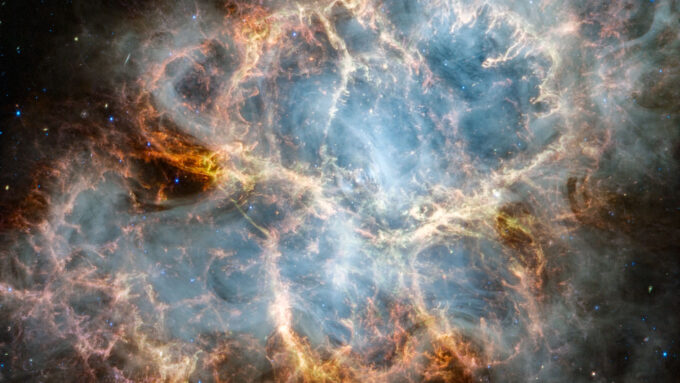
Scientists Say: Cosmic rays
These energy-packed particles come to us from the farthest reaches of outer space.
By Katie Grace Carpenter August 26, 2024
Experiments

Experiment: Why does the moon look larger on the horizon?
In this experiment, let’s investigate Emmert’s law, which may explain the full moon optical illusion.
By Science Buddies August 6, 2024
Technically Fiction
 trails behind him. A tan, multistory building is in the background" width="630" height="383" />
trails behind him. A tan, multistory building is in the background" width="630" height="383" />
Superman’s kryptonite doesn’t have a true equal on Earth
Though not quite kryptonite, some Earth minerals can glow under ultraviolet light. Excited electrons cause these real-life power stones to light up.
By Aaron Tremper August 14, 2024

Educators and Parents, Sign Up for The Cheat Sheet
Weekly updates to help you use Science News Explores in the learning environment
Thank you for signing up!
There was a problem signing you up.
What's Hot
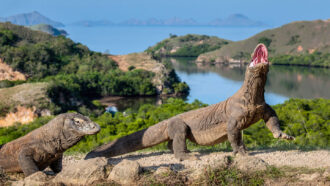
Metal gives the teeth of Komodo dragons their super strength
By Erin Garcia de Jesús August 23, 2024
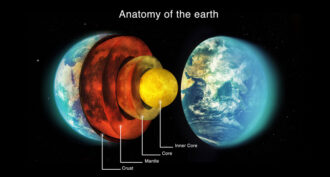
Explainer: Earth — layer by layer
By Beth Geiger November 11, 2019

Stashing more CO2 in the ocean could slow climate change
By Carolyn Gramling August 29, 2024
Here’s why some shooting stars have long-lasting afterglows
By Lisa Grossman September 2, 2024
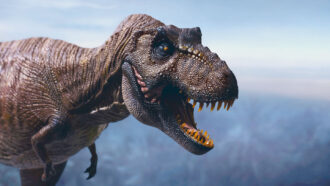
Just how brainy was a T. rex?
By Freda Kreier July 25, 2024

The science of ghosts
By Kathryn Hulick October 31, 2019

Explainer: How do mass and weight differ?
By Trisha Muro February 22, 2022

Top 10 tips on how to study smarter, not longer
By Kathiann Kowalski September 9, 2020
Back to School

Top 10 tips on how to study smarter, not longer
Here are 10 tips — all based on science — about what tends to help us learn and remember most effectively.
By Kathiann Kowalski September 9, 2020
Let’s learn about why schools should start later
Think twice before using ChatGPT for help with homework
Let’s learn about dealing with math anxiety
Watch This
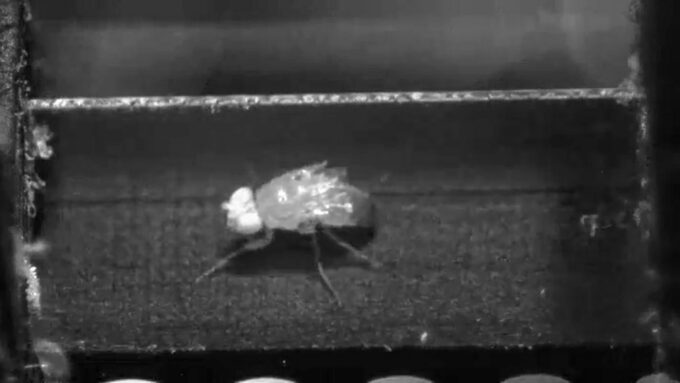
Tiny treadmills reveal how fruit flies sprint
Forcing fruit flies to move shows how the insects coordinate their steps. This holds clues to other animals’ brains and movement.
Belugas can warp and wiggle their forehead fat like Jell-O
Turning jeans blue with sunlight might help the environment
This egg-laying amphibian feeds its babies ‘milk’
What the weird world of protists can teach us about life on Earth
More Stories
Earth
 trails behind him. A tan, multistory building is in the background" width="306" height="186" />
trails behind him. A tan, multistory building is in the background" width="306" height="186" />
Superman’s kryptonite doesn’t have a true equal on Earth
By Aaron Tremper August 14, 2024
Hawaii’s Kilauea volcano recently erupted like a stomp rocket
By Carolyn Gramling July 24, 2024
Analyze This: Where are U.S. earthquakes most likely?
By Carolyn Wilke July 3, 2024
Space
Here’s why some shooting stars have long-lasting afterglows
By Lisa Grossman September 2, 2024
Summer ‘space hurricanes’ are emerging high above Earth’s magnetic poles
By Carolyn Gramling August 30, 2024
Scientists Say: Cosmic rays
By Katie Grace Carpenter August 26, 2024
Tech
Did builders of Egypt’s first pyramid use a water-powered elevator?
By Bruce Bower September 3, 2024
Robotics might someday give us an extra hand
By Payal Dhar August 20, 2024
Lasers help put the cork on spilled oil
By Stephen Ornes August 7, 2024
Environment
To limit pollution, new recipe makes plastic a treat for microbes
By Skyler Ware May 13, 2024
Scientists Say: Carbon capture
By Katie Grace Carpenter March 18, 2024
Bottled water hosts many thousands of nano-sized plastic bits
By Laura Allen March 6, 2024
Animals
 with a giant tusk and ribcage on the ground. In the background, the sun sets on a cloudy sky." width="330" height="186" />
with a giant tusk and ribcage on the ground. In the background, the sun sets on a cloudy sky." width="330" height="186" />
The last woolly mammoths offer new clues to why this species died out
By Claire Yuan August 26, 2024
Metal gives the teeth of Komodo dragons their super strength
By Erin Garcia de Jesús August 23, 2024
A childhood dog inspired this veterinarian to help others
By Aaron Tremper August 13, 2024
Brain
Just how brainy was a T. rex?
By Freda Kreier July 25, 2024
Herbal medicine could help recovery after concussion
By McKenzie Prillaman May 15, 2024
Handwriting may boost brain connections that aid memory
By Claudia López Lloreda March 15, 2024
Physics
Forget moon walking, lunar visitors. Try horizontal running
By Meghan Rosen July 11, 2024
Experiment: Measure the speed of light with a laser
By Science Buddies July 8, 2024
Here’s why scientists want a good quantum computer
By Stephen Ornes May 30, 2024
Health & Medicine
Python fangs inspired a fix for shoulder injuries common in sports
By Claire Yuan 18 hours ago
A little-known gene may explain why some people never get COVID-19
By Jonathan Lambert August 8, 2024
This spice could be the basis of a smart, infection-fighting bandage
By McKenzie Prillaman July 3, 2024
Science News Explores
Founded in 2003, Science News Explores is a free, award-winning online publication dedicated to providing age-appropriate science news to learners, parents and educators. The publication, as well as Science News magazine, are published by the Society for Science, a nonprofit 501(c)(3) membership organization dedicated to public engagement in scientific research and education.
- Science News
- Science News Learning
© Society for Science & the Public 2000–2024. All rights reserved.







 trails behind him. A tan, multistory building is in the background" width="630" height="383" />
trails behind him. A tan, multistory building is in the background" width="630" height="383" />









 trails behind him. A tan, multistory building is in the background" width="306" height="186" />
trails behind him. A tan, multistory building is in the background" width="306" height="186" />
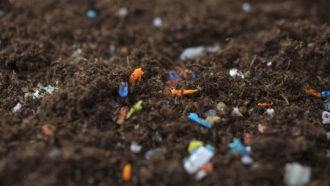
 with a giant tusk and ribcage on the ground. In the background, the sun sets on a cloudy sky." width="330" height="186" />
with a giant tusk and ribcage on the ground. In the background, the sun sets on a cloudy sky." width="330" height="186" />
